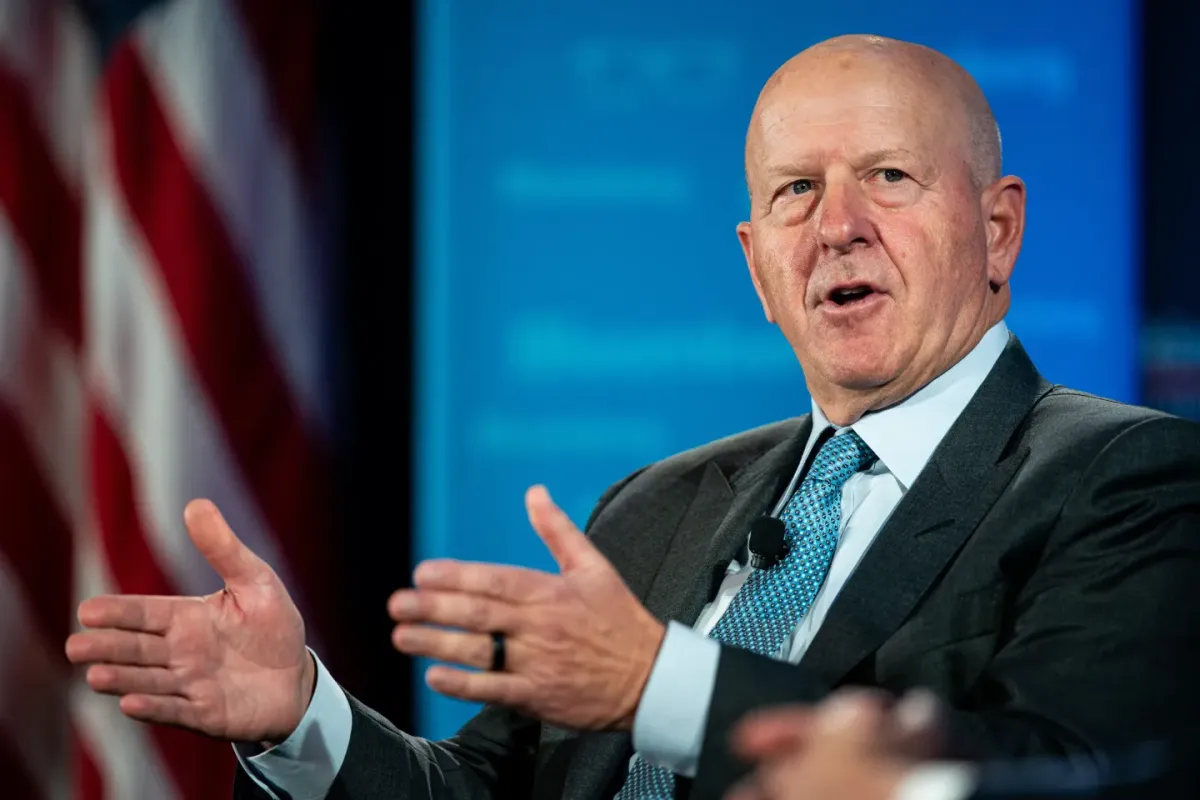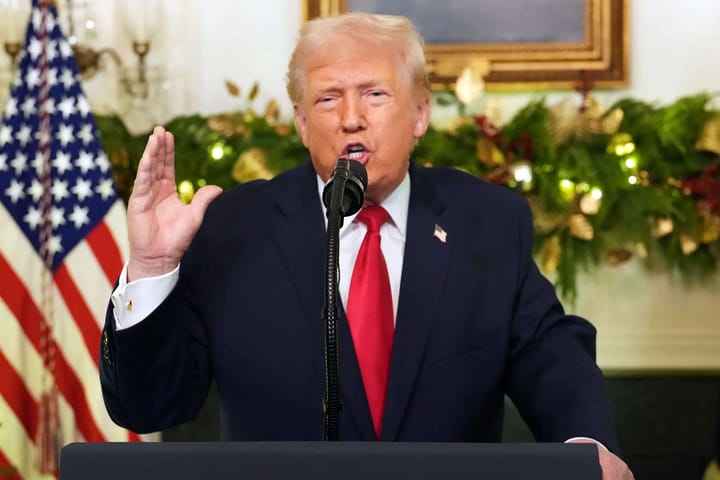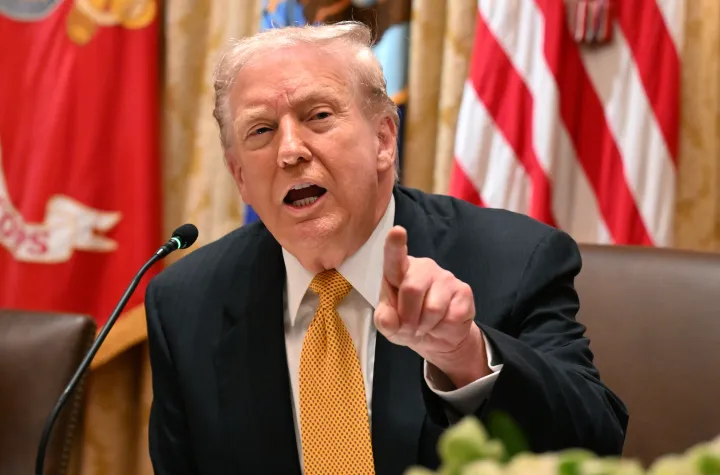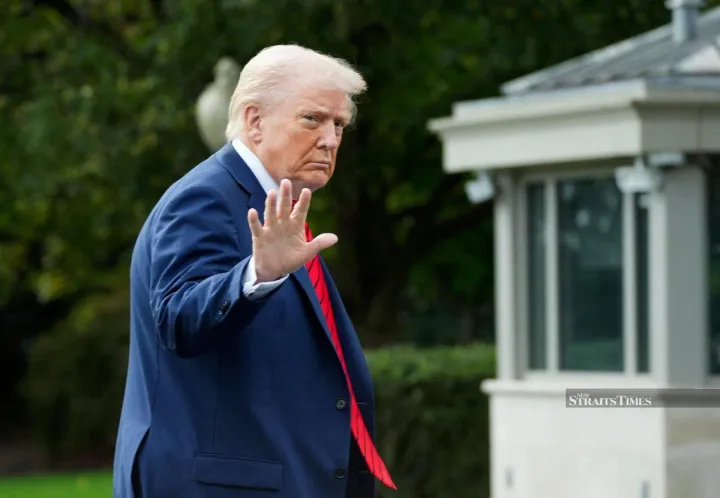Goldman Sachs CEO David Solomon Warns of Looming Crisis: ‘There Will Be a Reckoning’ Over America’s $38 Trillion Debt

Goldman Sachs CEO Sounds Alarm on U.S. National Debt
Goldman Sachs CEO David Solomon has issued a grave warning about America’s skyrocketing national debt, saying the U.S. could face serious consequences if the current fiscal trend continues unchecked. Speaking with David Rubenstein on The David Rubenstein Show, Solomon said bluntly: “If we don’t get growth up, there will be a reckoning on this.”
The U.S. national debt has reached an eye-watering $38 trillion, a figure that has accelerated dramatically in just the past few years. According to Solomon, what’s most concerning is not only the sheer size of the debt but also the pace at which it has grown.
A Debt Problem That’s Spiraling Out of Control
Solomon highlighted how the U.S. debt has ballooned from around $10 trillion in 2008 to nearly four times that amount today. “It doesn’t seem like we have the ability to pull it back,” he said, explaining that massive fiscal stimulus measures have become “embedded” into modern democratic economies.
This exponential rise isn’t just a number—it’s reshaping the nation’s financial stability. The Peter G. Peterson Foundation recently reported that the increase from $37 trillion to $38 trillion happened at one of the fastest rates ever recorded outside of the pandemic years.
Its CEO, Michael Peterson, called it a dangerous pattern: “Adding trillion after trillion to the debt and budgeting-by-crisis is no way for a great nation like America to run its finances.”
Solomon’s Warning: Growth, Not Taxes, Is the Solution
While some economists believe the only way to control the debt is through higher taxes or deep spending cuts, Solomon offered a different view. “The real solution isn’t just about revenue—it’s about growth,” he said.
He emphasized that the key lies in boosting the U.S. growth trajectory, explaining how even a small difference in growth rates can make a massive impact. “The difference between 2% and 3% compounded growth is monstrous when you think about debt management,” Solomon said.
To him, the answer lies in stimulating economic productivity, not just collecting more taxes.
How Technology and Infrastructure Could Save the Economy
Despite his warning, Solomon said there’s reason for optimism. He pointed to the “productivity opportunity” offered by technology and artificial intelligence (AI). According to him, embedding technology across industries could lift overall efficiency and output.
He also highlighted a major infrastructure investment boom, saying that six or seven large U.S. companies are projected to spend over $350 billion this year on infrastructure projects. This kind of large-scale investment, Solomon believes, could provide the much-needed growth boost to offset debt concerns.
Additionally, he said that recent efforts to streamline government regulation—by focusing only on rules that are “really necessary and effective”—could help create a more dynamic business environment.
“There Will Be a Reckoning”
Solomon didn’t mince words about what could happen if the government keeps borrowing at the current pace. If the U.S. continues to refinance its growing debt at existing rates, he warned, it will likely climb into “the low forties, for sure.”
That means within just a few years, the national debt could cross $40 trillion—a level that might test the confidence of investors and foreign governments that fund America’s borrowing.
“Ultimately, we have to find people to buy and finance our debt,” he cautioned. “If it keeps growing, it’s not going to be other people around the world who’ll solve it—it’s going to turn to us.”
Comparing Notes with Other Financial Titans
Solomon isn’t alone in his concerns. Other top financial minds, including Ray Dalio, the billionaire founder of Bridgewater Associates, have repeatedly sounded alarms about America’s debt trajectory.
Dalio has described it as an “economic heart attack” waiting to happen, comparing the buildup of debt to “plaque” clogging an artery—an issue that could suddenly turn catastrophic if not addressed.
Similarly, business leaders from various industries are frustrated by the growing culture of financial procrastination. Allan Merrill, CEO of Beazer Homes, recently said: “We want things that we don’t want to pay for right now. We’re going to let someone else in the future pay for them.”
The Near-Term Outlook: Calm Before the Storm?
Interestingly, despite his warnings about the long-term fiscal picture, Solomon painted a relatively positive short-term view of the U.S. economy.
“The economy is in pretty good shape at the moment,” he said, adding that the chances of a recession in the near term are “low.” He credited this resilience to a mix of consumer spending, business investment, and the ongoing tech-driven productivity wave.
However, he also noted that uncertainty in U.S. policy—especially around elections—is a constant that business leaders must learn to navigate. “Our job as business leaders is to adapt and adjust. We can’t avoid it,” he said.
Solomon also reaffirmed the importance of the Federal Reserve’s independence, calling it one of the most stabilizing forces in the global financial system. “Central bank independence has served us very, very well,” he said firmly.
A Delicate Balance Between Growth and Responsibility
Solomon’s comments echo a growing consensus that the U.S. must strike a balance between stimulating growth and maintaining fiscal responsibility. While innovation, AI, and infrastructure may drive economic momentum, unchecked debt could still undermine that progress.
His message was clear: America’s future prosperity depends not on short-term fixes or partisan debates, but on sustainable, long-term economic growth. Without it, the nation could face a financial reckoning unlike anything in modern history.
As the Goldman Sachs CEO put it: “If it keeps growing, it’s going to turn to us.”



